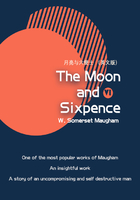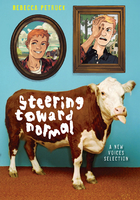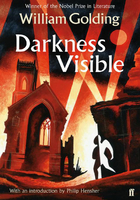In the year 1775, there stood upon the borders of Epping Forest, at a distance of about twelve miles from London-measuring from the Standard in Cornhill,' or rather from the spot on or near to which the Standard used to be in days of yore-a house of public entertainment called the Maypole; which fact was demonstrated to all such travellers as could neither read nor write (and at that time a vast number both of travellers and stay-at-homes were in this condition) by the emblem reared on the roadside over against the house, which, if not of those goodly proportions that Maypoles were wont to present in olden times, was a fair young ash, thirty feet in height, and straight as any arrow that ever English yeoman drew.
The Maypole-by which term from henceforth is meant the house, and not its sign-the Maypole was an old building, with more gable ends than a lazy man would care to count on a sunny day; huge zig-zag chimneys, out of which it seemed as though even smoke could not choose but come in more than naturally fantastic shapes, imparted to it in its tortuous progress; and vast stables, gloomy, ruinous, and empty. The place was said to have been built in the days of King Henry the Eighth; and there was a legend, not only that Queen Elizabeth had slept there one night while upon a hunting excursion, to wit, in a certain oak-panelled room with a deep bay window, but that next morning, while standing on a mounting block before the door with one foot in the stirrup, the virgin monarch had then and there boxed and cuffed an unlucky page for some neglect of duty. The matter-of-fact and doubtful folks, of whom there were a few among the Maypole customers, as unluckily there always are in every little community, were inclined to look upon this tradition as rather apocryphal; but, whenever the landlord of that ancient hostelry appealed to the mounting block itself as evidence, and triumphantly pointed out that there it stood in the same place to that very day, the doubters never failed to be put down by a large majority, and all true believers exulted as in a victory.
Whether these, and many other stories of the like nature, were true or untrue, the Maypole was really an old house, a very old house, perhaps as old as it claimed to be, and perhaps older, which will sometimes happen with houses of an uncertain, as with ladies of a certain, age. Its windows were old diamond-pane lattices, its floors were sunken and uneven, its ceilings blackened by the hand of time, and heavy with massive beams. Over the doorway was an ancient porch, quaintly and grotesquely carved; and here on summer evenings the more favoured customers smoked and drank-ay, and sang many a good song too, sometimes-reposing on two grim-looking high-backed settles, which, like the twin dragons of some fairy tale, guarded the entrance to the mansion.
In the chimneys of the disused rooms, swallows had built their nests for many a long year, and from earliest spring to latest autumn whole colonies of sparrows chirped and twittered in the eaves. There were more pigeons about the dreary stable-yard and out-buildings than anybody but the landlord could reckon up. The wheeling and circling flights of runts, fantails, tumblers, and pouters, were perhaps not quite consistent with the grave and sober character of the building, but the monotonous cooing, which never ceased to be raised by some among them all day long, suited it exactly, and seemed to lull it to rest. With its overhanging stories, drowsy little panes of glass, and front bulging out and projecting over the pathway, the old house looked as if it were nodding in its sleep. Indeed, it needed no very great stretch of fancy to detect in it other resemblances to humanity. The bricks of which it was built had originally been a deep dark red, but had grown yellow and discoloured like an old man's skin; the sturdy timbers had decayed like teeth; and here and there the ivy, like a warm garment to comfort it in its age, wrapt its green leaves closely round the time-worn walls.
It was a hale and hearty age though, still: and in the summer or autumn evenings, when the glow of the setting sun fell upon the oak and chestnut trees of the adjacent forest, the old house, partaking of its lustre, seemed their fit companion, and to have many good years of life in him yet.
The evening with which we have to do, was neither a summer nor an autumn one, but the twilight of a day in March, when the wind howled dismally among the bare branches of the trees, and rumbling in the wide chimneys and driving the rain against the windows of the Maypole Inn, gave such of its frequenters as chanced to be there at the moment an undeniable reason for prolonging their stay, and caused the landlord to prophesy that the night would certainly clear at eleven o'clock precisely,-which by a remarkable coincidence was the hour at which he always closed his house.
The name of him upon whom the spirit of prophecy thus descended was John Willet, a burly, large-headed man with a fat face, which betokened profound obstinacy and slowness of apprehension, combined with a very strong reliance upon his own merits. It was John Willet's ordinary boast in his more placid moods that if he were slow he was sure; which assertion could, in one sense at least, be by no means gainsaid, seeing that he was in everything unquestionably the reverse of fast, and withal one of the most dogged and positive fellows in existence-always sure that what he thought or said or did was right, and holding it as a thing quite settled and ordained by the laws of nature and Providence, that anybody who said or did or thought otherwise must be inevitably and of necessity wrong.
Mr Willet walked slowly up to the window, flattened his fat nose against the cold glass, and shading his eyes that his sight might not be affected by the ruddy glow of the fire, looked abroad. Then he walked slowly back to his old seat in the chimney-corner, and, composing himself in it with a slight shiver, such as a man might give way to and so acquire an additional relish for the warm blaze, said, looking round upon his guests:
'It'll clear at eleven o'clock. No sooner and no later. Not before and not arterwards.'
'How do you make out that?' said a little man in the opposite corner. 'The moon is past the full, and she rises at nine.'
John looked sedately and solemnly at his questioner until he had brought his mind to bear upon the whole of his observation, and then made answer, in a tone which seemed to imply that the moon was peculiarly his business and nobody else's:
'Never you mind about the moon. Don't you trouble yourself about her. You let the moon alone, and I'll let you alone.'
'No offence I hope?' said the little man.
Again John waited leisurely until the observation had thoroughly penetrated to his brain, and then replying, 'No offence as yet,' applied a light to his pipe and smoked in placid silence; now and then casting a sidelong look at a man wrapped in a loose riding- coat with huge cuffs ornamented with tarnished silver lace and large metal buttons, who sat apart from the regular frequenters of the house, and wearing a hat flapped over his face, which was still further shaded by the hand on which his forehead rested, looked unsociable enough.
There was another guest, who sat, booted and spurred, at some distance from the fire also, and whose thoughts-to judge from his folded arms and knitted brows, and from the untasted liquor before him-were occupied with other matters than the topics under discussion or the persons who discussed them. This was a young man of about eight-and-twenty, rather above the middle height, and though of somewhat slight figure, gracefully and strongly made. He wore his own dark hair, and was accoutred in a riding dress, which together with his large boots (resembling in shape and fashion those worn by our Life Guardsmen at the present day), showed indisputable traces of the bad condition of the roads. But travel- stained though he was, he was well and even richly attired, and without being overdressed looked a gallant gentleman.
Lying upon the table beside him, as he had carelessly thrown them down, were a heavy riding-whip and a slouched hat, the latter worn no doubt as being best suited to the inclemency of the weather. There, too, were a pair of pistols in a holster-case, and a short riding-cloak. Little of his face was visible, except the long dark lashes which concealed his downcast eyes, but an air of careless ease and natural gracefulness of demeanour pervaded the figure, and seemed to comprehend even those slight accessories, which were all handsome, and in good keeping.
Towards this young gentleman the eyes of Mr Willet wandered but once, and then as if in mute inquiry whether he had observed his silent neighbour. It was plain that John and the young gentleman had often met before. Finding that his look was not returned, or indeed observed by the person to whom it was addressed, John gradually concentrated the whole power of his eyes into one focus, and brought it to bear upon the man in the flapped hat, at whom he came to stare in course of time with an intensity so remarkable, that it affected his fireside cronies, who all, as with one accord, took their pipes from their lips, and stared with open mouths at the stranger likewise.
The sturdy landlord had a large pair of dull fish-like eyes, and the little man who had hazarded the remark about the moon (and who was the parish-clerk and bell-ringer of Chigwell, a village hard by) had little round black shiny eyes like beads; moreover this little man wore at the knees of his rusty black breeches, and on his rusty black coat, and all down his long flapped waistcoat, little queer buttons like nothing except his eyes; but so like them, that as they twinkled and glistened in the light of the fire, which shone too in his bright shoe-buckles, he seemed all eyes from head to foot, and to be gazing with every one of them at the unknown customer. No wonder that a man should grow restless under such an inspection as this, to say nothing of the eyes belonging to short Tom Cobb the general chandler and post-office keeper, and long Phil Parkes the ranger, both of whom, infected by the example of their companions, regarded him of the flapped hat no less attentively.
The stranger became restless; perhaps from being exposed to this raking fire of eyes, perhaps from the nature of his previous meditations-most probably from the latter cause, for as he changed his position and looked hastily round, he started to find himself the object of such keen regard, and darted an angry and suspicious glance at the fireside group. It had the effect of immediately diverting all eyes to the chimney, except those of John Willet, who finding himself as it were, caught in the fact, and not being (as has been already observed) of a very ready nature, remained staring at his guest in a particularly awkward and disconcerted manner.
'Well?' said the stranger.
Well. There was not much in well. It was not a long speech. 'I thought you gave an order,' said the landlord, after a pause of two or three minutes for consideration.
The stranger took off his hat, and disclosed the hard features of a man of sixty or thereabouts, much weatherbeaten and worn by time, and the naturally harsh expression of which was not improved by a dark handkerchief which was bound tightly round his head, and, while it served the purpose of a wig, shaded his forehead, and almost hid his eyebrows. If it were intended to conceal or divert attention from a deep gash, now healed into an ugly seam, which when it was first inflicted must have laid bare his cheekbone, the object was but indifferently attained, for it could scarcely fail to be noted at a glance. His complexion was of a cadaverous hue, and he had a grizzly jagged beard of some three weeks' date. Such was the figure (very meanly and poorly clad) that now rose from the seat, and stalking across the room sat down in a corner of the chimney, which the politeness or fears of the little clerk very readily assigned to him.
'A highwayman!' whispered Tom Cobb to Parkes the ranger.
'Do you suppose highwaymen don't dress handsomer than that?' replied Parkes. 'It's a better business than you think for, Tom, and highwaymen don't need or use to be shabby, take my word for it.'
Meanwhile the subject of their speculations had done due honour to the house by calling for some drink, which was promptly supplied by the landlord's son Joe, a broad-shouldered strapping young fellow of twenty, whom it pleased his father still to consider a little boy, and to treat accordingly. Stretching out his hands to warm them by the blazing fire, the man turned his head towards the company, and after running his eye sharply over them, said in a voice well suited to his appearance:
'What house is that which stands a mile or so from here?'
'Public-house?' said the landlord, with his usual deliberation.
'Public-house, father!' exclaimed Joe, 'where's the public-house within a mile or so of the Maypole? He means the great house-the Warren-naturally and of course. The old red brick house, sir, that stands in its own grounds-?'
'Aye,' said the stranger.
'And that fifteen or twenty years ago stood in a park five times as broad, which with other and richer property has bit by bit changed hands and dwindled away-more's the pity!' pursued the young man.
'Maybe,' was the reply. 'But my question related to the owner. What it has been I don't care to know, and what it is I can see for myself.'
The heir-apparent to the Maypole pressed his finger on his lips, and glancing at the young gentleman already noticed, who had changed his attitude when the house was first mentioned, replied in a lower tone:
'The owner's name is Haredale, Mr Geoffrey Haredale, and'-again he glanced in the same direction as before-'and a worthy gentleman too-hem!'
Paying as little regard to this admonitory cough, as to the significant gesture that had preceded it, the stranger pursued his questioning.
'I turned out of my way coming here, and took the footpath that crosses the grounds. Who was the young lady that I saw entering a carriage? His daughter?'
'Why, how should I know, honest man?' replied Joe, contriving in the course of some arrangements about the hearth, to advance close to his questioner and pluck him by the sleeve, 'I didn't see the young lady, you know. Whew! There's the wind again-AND rain- well it Is a night!'
Rough weather indeed!' observed the strange man.
'You're used to it?' said Joe, catching at anything which seemed to promise a diversion of the subject.
'Pretty well,' returned the other. 'About the young lady-has Mr Haredale a daughter?'
'No, no,' said the young fellow fretfully, 'he's a single gentleman-he's-be quiet, can't you, man? Don't you see this talk is not relished yonder?'
Regardless of this whispered remonstrance, and affecting not to hear it, his tormentor provokingly continued:
'Single men have had daughters before now. Perhaps she may be his daughter, though he is not married.'
'What do you mean?' said Joe, adding in an undertone as he approached him again, 'You'll come in for it presently, I know you will!'
'I mean no harm'-returned the traveller boldly, 'and have said none that I know of. I ask a few questions-as any stranger may, and not unnaturally-about the inmates of a remarkable house in a neighbourhood which is new to me, and you are as aghast and disturbed as if I were talking treason against King George. Perhaps you can tell me why, sir, for (as I say) I am a stranger, and this is Greek to me?'
The latter observation was addressed to the obvious cause of Joe Willet's discomposure, who had risen and was adjusting his riding- cloak preparatory to sallying abroad. Briefly replying that he could give him no information, the young man beckoned to Joe, and handing him a piece of money in payment of his reckoning, hurried out attended by young Willet himself, who taking up a candle followed to light him to the house-door.
While Joe was absent on this errand, the elder Willet and his three companions continued to smoke with profound gravity, and in a deep silence, each having his eyes fixed on a huge copper boiler that was suspended over the fire. After some time John Willet slowly shook his head, and thereupon his friends slowly shook theirs; but no man withdrew his eyes from the boiler, or altered the solemn expression of his countenance in the slightest degree.
At length Joe returned-very talkative and conciliatory, as though with a strong presentiment that he was going to be found fault with.
'Such a thing as love is!' he said, drawing a chair near the fire, and looking round for sympathy. 'He has set off to walk to London,-all the way to London. His nag gone lame in riding out here this blessed afternoon, and comfortably littered down in our stable at this minute; and he giving up a good hot supper and our best bed, because Miss Haredale has gone to a masquerade up in town, and he has set his heart upon seeing her! I don't think I could persuade myself to do that, beautiful as she is,-but then I'm not in love (at least I don't think I am) and that's the whole difference.'
'He is in love then?' said the stranger.
'Rather,' replied Joe. 'He'll never be more in love, and may very easily be less.'
'Silence, sir!' cried his father.
'What a chap you are, Joe!' said Long Parkes.
'Such a inconsiderate lad!' murmured Tom Cobb.
'Putting himself forward and wringing the very nose off his own father's face!' exclaimed the parish-clerk, metaphorically.
'What have I done?' reasoned poor Joe.
'Silence, sir!' returned his father, 'what do you mean by talking, when you see people that are more than two or three times your age, sitting still and silent and not dreaming of saying a word?'
'Why that's the proper time for me to talk, isn't it?' said Joe rebelliously.
'The proper time, sir!' retorted his father, 'the proper time's no time.'
'Ah to be sure!' muttered Parkes, nodding gravely to the other two who nodded likewise, observing under their breaths that that was the point.
'The proper time's no time, sir,' repeated John Willet; 'when I was your age I never talked, I never wanted to talk. I listened and improved myself that's what I did.'
'And you'd find your father rather a tough customer in argeyment, Joe, if anybody was to try and tackle him,' said Parkes.
'For the matter o' that, Phil!' observed Mr Willet, blowing a long, thin, spiral cloud of smoke out of the corner of his mouth, and staring at it abstractedly as it floated away; 'For the matter o' that, Phil, argeyment is a gift of Natur. If Natur has gifted a man with powers of argeyment, a man has a right to make the best of 'em, and has not a right to stand on false delicacy, and deny that he is so gifted; for that is a turning of his back on Natur, a flouting of her, a slighting of her precious caskets, and a proving of one's self to be a swine that isn't worth her scattering pearls before.'
The landlord pausing here for a very long time, Mr Parkes naturally concluded that he had brought his discourse to an end; and therefore, turning to the young man with some austerity, exclaimed:
'You hear what your father says, Joe? You wouldn't much like to tackle him in argeyment, I'm thinking, sir.'
'If,' said John Willet, turning his eyes from the ceiling to the face of his interrupter, and uttering the monosyllable in capitals, to apprise him that he had put in his oar, as the vulgar say, with unbecoming and irreverent haste; 'if, sir, Natur has fixed upon me the gift of argeyment, why should I not own to it, and rather glory in the same? Yes, sir, I am a tough customer that way. You are right, sir. My toughness has been proved, sir, in this room many and many a time, as I think you know; and if you don't know,' added John, putting his pipe in his mouth again, 'so much the better, for I an't proud and am not going to tell you.'
A general murmur from his three cronies, and a general shaking of heads at the copper boiler, assured John Willet that they had had good experience of his powers and needed no further evidence to assure them of his superiority. John smoked with a little more dignity and surveyed them in silence.
'It's all very fine talking,' muttered Joe, who had been fidgeting in his chair with divers uneasy gestures. 'But if you mean to tell me that I'm never to open my lips-'
'Silence, sir!' roared his father. 'No, you never are. When your opinion's wanted, you give it. When you're spoke to, you speak. When your opinion's not wanted and you're not spoke to, don't you give an opinion and don't you speak. The world's undergone a nice alteration since my time, certainly. My belief is that there an't any boys left-that there isn't such a thing as a boy-that there's nothing now between a male baby and a man-and that all the boys went out with his blessed Majesty King George the Second.'
'That's a very true observation, always excepting the young princes,' said the parish-clerk, who, as the representative of church and state in that company, held himself bound to the nicest loyalty. 'If it's godly and righteous for boys, being of the ages of boys, to behave themselves like boys, then the young princes must be boys and cannot be otherwise.'
'Did you ever hear tell of mermaids, sir?' said Mr Willet.
'Certainly I have,' replied the clerk.
'Very good,' said Mr Willet. 'According to the constitution of mermaids, so much of a mermaid as is not a woman must be a fish. According to the constitution of young princes, so much of a young prince (if anything) as is not actually an angel, must be godly and righteous. Therefore if it's becoming and godly and righteous in the young princes (as it is at their ages) that they should be boys, they are and must be boys, and cannot by possibility be anything else.'
This elucidation of a knotty point being received with such marks of approval as to put John Willet into a good humour, he contented himself with repeating to his son his command of silence, and addressing the stranger, said:
'If you had asked your questions of a grown-up person-of me or any of these gentlemen-you'd have had some satisfaction, and wouldn't have wasted breath. Miss Haredale is Mr Geoffrey Haredale's niece.'
'Is her father alive?' said the man, carelessly.
'No,' rejoined the landlord, 'he is not alive, and he is not dead-'
'Not dead!' cried the other.
'Not dead in a common sort of way,' said the landlord.
The cronies nodded to each other, and Mr Parkes remarked in an undertone, shaking his head meanwhile as who should say, 'let no man contradict me, for I won't believe him,' that John Willet was in amazing force to-night, and fit to tackle a Chief Justice.
The stranger suffered a short pause to elapse, and then asked abruptly, 'What do you mean?'
'More than you think for, friend,' returned John Willet. 'Perhaps there's more meaning in them words than you suspect.'
'Perhaps there is,' said the strange man, gruffly; 'but what the devil do you speak in such mysteries for? You tell me, first, that a man is not alive, nor yet dead-then, that he's not dead in a common sort of way-then, that you mean a great deal more than I think for. To tell you the truth, you may do that easily; for so far as I can make out, you mean nothing. What do you mean, I ask again?'
'That,' returned the landlord, a little brought down from his dignity by the stranger's surliness, 'is a Maypole story, and has been any time these four-and-twenty years. That story is Solomon Daisy's story. It belongs to the house; and nobody but Solomon Daisy has ever told it under this roof, or ever shall-that's more.'
The man glanced at the parish-clerk, whose air of consciousness and importance plainly betokened him to be the person referred to, and, observing that he had taken his pipe from his lips, after a very long whiff to keep it alight, and was evidently about to tell his story without further solicitation, gathered his large coat about him, and shrinking further back was almost lost in the gloom of the spacious chimney-corner, except when the flame, struggling from under a great faggot, whose weight almost crushed it for the time, shot upward with a strong and sudden glare, and illumining his figure for a moment, seemed afterwards to cast it into deeper obscurity than before.
By this flickering light, which made the old room, with its heavy timbers and panelled walls, look as if it were built of polished ebony-the wind roaring and howling without, now rattling the latch and creaking the hinges of the stout oaken door, and now driving at the casement as though it would beat it in-by this light, and under circumstances so auspicious, Solomon Daisy began his tale:
'It was Mr Reuben Haredale, Mr Geoffrey's elder brother-'
Here he came to a dead stop, and made so long a pause that even John Willet grew impatient and asked why he did not proceed.
'Cobb,' said Solomon Daisy, dropping his voice and appealing to the post-office keeper; 'what day of the month is this?'
'The nineteenth.'
'Of March,' said the clerk, bending forward, 'the nineteenth of March; that's very strange.'
In a low voice they all acquiesced, and Solomon went on:
'It was Mr Reuben Haredale, Mr Geoffrey's elder brother, that twenty-two years ago was the owner of the Warren, which, as Joe has said-not that you remember it, Joe, for a boy like you can't do that, but because you have often heard me say so-was then a much larger and better place, and a much more valuable property than it is now. His lady was lately dead, and he was left with one child-the Miss Haredale you have been inquiring about-who was then scarcely a year old.'
Although the speaker addressed himself to the man who had shown so much curiosity about this same family, and made a pause here as if expecting some exclamation of surprise or encouragement, the latter made no remark, nor gave any indication that he heard or was interested in what was said. Solomon therefore turned to his old companions, whose noses were brightly illuminated by the deep red glow from the bowls of their pipes; assured, by long experience, of their attention, and resolved to show his sense of such indecent behaviour.
'Mr Haredale,' said Solomon, turning his back upon the strange man, 'left this place when his lady died, feeling it lonely like, and went up to London, where he stopped some months; but finding that place as lonely as this-as I suppose and have always heard say-he suddenly came back again with his little girl to the Warren, bringing with him besides, that day, only two women servants, and his steward, and a gardener.'
Mr Daisy stopped to take a whiff at his pipe, which was going out, and then proceeded-at first in a snuffling tone, occasioned by keen enjoyment of the tobacco and strong pulling at the pipe, and afterwards with increasing distinctness:
'-Bringing with him two women servants, and his steward, and a gardener. The rest stopped behind up in London, and were to follow next day. It happened that that night, an old gentleman who lived at Chigwell Row, and had long been poorly, deceased, and an order came to me at half after twelve o'clock at night to go and toll the passing-bell.'
There was a movement in the little group of listeners, sufficiently indicative of the strong repugnance any one of them would have felt to have turned out at such a time upon such an errand. The clerk felt and understood it, and pursued his theme accordingly.
'It was a dreary thing, especially as the grave-digger was laid up in his bed, from long working in a damp soil and sitting down to take his dinner on cold tombstones, and I was consequently under obligation to go alone, for it was too late to hope to get any other companion. However, I wasn't unprepared for it; as the old gentleman had often made it a request that the bell should be tolled as soon as possible after the breath was out of his body, and he had been expected to go for some days. I put as good a face upon it as I could, and muffling myself up (for it was mortal cold), started out with a lighted lantern in one hand and the key of the church in the other.'
At this point of the narrative, the dress of the strange man rustled as if he had turned himself to hear more distinctly. Slightly pointing over his shoulder, Solomon elevated his eyebrows and nodded a silent inquiry to Joe whether this was the case. Joe shaded his eyes with his hand and peered into the corner, but could make out nothing, and so shook his head.
'It was just such a night as this; blowing a hurricane, raining heavily, and very dark-I often think now, darker than I ever saw it before or since; that may be my fancy, but the houses were all close shut and the folks in doors, and perhaps there is only one other man who knows how dark it really was. I got into the church, chained the door back so that it should keep ajar-for, to tell the truth, I didn't like to be shut in there alone-and putting my lantern on the stone seat in the little corner where the bell-rope is, sat down beside it to trim the candle.
'I sat down to trim the candle, and when I had done so I could not persuade myself to get up again, and go about my work. I don't know how it was, but I thought of all the ghost stories I had ever heard, even those that I had heard when I was a boy at school, and had forgotten long ago; and they didn't come into my mind one after another, but all crowding at once, like. I recollected one story there was in the village, how that on a certain night in the year (it might be that very night for anything I knew), all the dead people came out of the ground and sat at the heads of their own graves till morning. This made me think how many people I had known, were buried between the church-door and the churchyard gate, and what a dreadful thing it would be to have to pass among them and know them again, so earthy and unlike themselves. I had known all the niches and arches in the church from a child; still, I couldn't persuade myself that those were their natural shadows which I saw on the pavement, but felt sure there were some ugly figures hiding among 'em and peeping out. Thinking on in this way, I began to think of the old gentleman who was just dead, and I could have sworn, as I looked up the dark chancel, that I saw him in his usual place, wrapping his shroud about him and shivering as if he felt it cold. All this time I sat listening and listening, and hardly dared to breathe. At length I started up and took the bell-rope in my hands. At that minute there rang-not that bell, for I had hardly touched the rope-but another!
'I heard the ringing of another bell, and a deep bell too, plainly. It was only for an instant, and even then the wind carried the sound away, but I heard it. I listened for a long time, but it rang no more. I had heard of corpse candles, and at last I persuaded myself that this must be a corpse bell tolling of itself at midnight for the dead. I tolled my bell-how, or how long, I don't know-and ran home to bed as fast as I could touch the ground.
'I was up early next morning after a restless night, and told the story to my neighbours. Some were serious and some made light of it; I don't think anybody believed it real. But, that morning, Mr Reuben Haredale was found murdered in his bedchamber; and in his hand was a piece of the cord attached to an alarm-bell outside the roof, which hung in his room and had been cut asunder, no doubt by the murderer, when he seized it.
'That was the bell I heard.
'A bureau was found opened, and a cash-box, which Mr Haredale had brought down that day, and was supposed to contain a large sum of money, was gone. The steward and gardener were both missing and both suspected for a long time, but they were never found, though hunted far and wide. And far enough they might have looked for poor Mr Rudge the steward, whose body-scarcely to be recognised by his clothes and the watch and ring he wore-was found, months afterwards, at the bottom of a piece of water in the grounds, with a deep gash in the breast where he had been stabbed with a knife. He was only partly dressed; and people all agreed that he had been sitting up reading in his own room, where there were many traces of blood, and was suddenly fallen upon and killed before his master.
Everybody now knew that the gardener must be the murderer, and though he has never been heard of from that day to this, he will be, mark my words. The crime was committed this day two-and-twenty years-on the nineteenth of March, one thousand seven hundred and fifty-three. On the nineteenth of March in some year-no matter when-I know it, I am sure of it, for we have always, in some strange way or other, been brought back to the subject on that day ever since-on the nineteenth of March in some year, sooner or later, that man will be discovered.'















